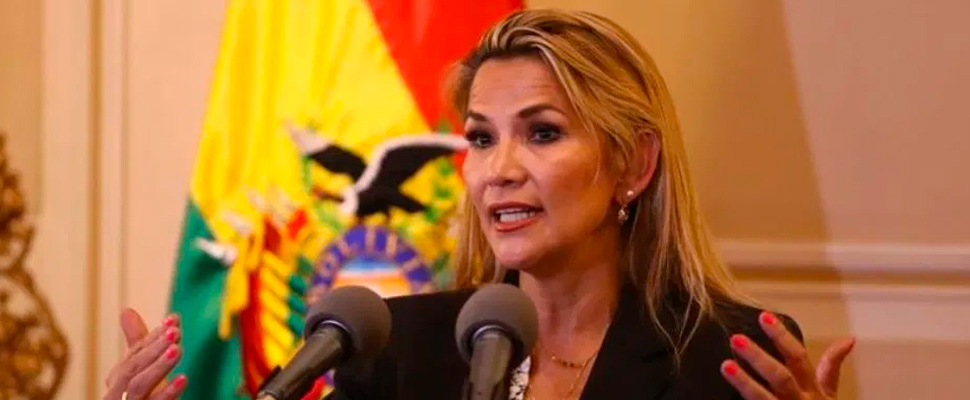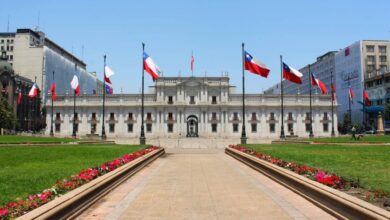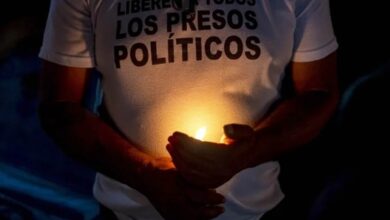Why did Bolivia break relations with Venezuela?
The interim government of Jeanine Áñez announced the decision last Friday, November 15

Jeanine Áñez, interim president of Bolivia during a conference. / Photo: EFE
LatinAmerican Post | Marcela Peñaloza
Listen to this article
Leer en español: ¿Por qué Bolivia rompió relaciones con Venezuela?
The political crisis in Bolivia does not stop. The arrival of Jeanine Áñez as interim president of the Latin American nation has caused a stir in different political sectors that have even interpreted the event as part of the alleged coup d'etat that Evo Morales would have suffered.
If this were not enough, Áñaez made the decision to break relations with Venezuela, specifically with the government of Nicolás Maduro. On Friday, November 15, Foreign Minister Karen Longaric said that Venezuelan diplomatic officials, based in La Paz embassy, were "undermining Bolivia's internal security."
The foreign minister also announced the withdrawal of Bolivia from the Bolivarian Alliance for the Peoples of Our America (ALBA, in Spanish) and reported that the same decision could be made regarding Unasur, the Union of South American Nations. The justification for implementing this measure is produced within the framework of respect for Human Rights and the democratic letter of the OAS (Organization of American States).
The surprise announcement came after the capture of nine Venezuelan citizens who were found by Bolivian authorities with weapons and accused of instigating the country's protests. According to Longaric, the interim government found evidence that Venezuelan officials incurred acts against the law that threatened Bolivia's security. The Foreign Ministry said that "it will give the corresponding deadline to all the staff of the Venezuelan embassy to leave the country for having been involved in internal affairs of the State."
Through her Twitter account, Áñaez thanked Juan Guaidó for the recognition of her government and invited him to appoint diplomatic officials in Bolivia, while recognizing that the Guaidó government is the legitimate one.
Agradezco al Presidente (E) de la República de Venezuela @jguaido por el reconocimiento a mi gobierno.
Como Presidenta Constitucional de Bolivia le invito a designar al nuevo Embajador de Venezuela en Bolivia, quien será reconocido de inmediado por nuestro gobierno. https://t.co/DWEqYIFvEF
— Jeanine Añez Chavez (@JeanineAnez) 13 de noviembre de 2019
Read also: These are the properties of El Chapo that were auctioned
The crisis in Bolivia does not stop
Áñez became president after the resignation of Evo Morales, who is currently in Mexico protected by political asylum. The interim government will be transitional as new presidential elections are called. Áñez affirmed that she is committed to "leading the transparent elections", although a new date for the electoral contest has not been set.
On several occasions, the president has affirmed that her government is legitimate and constitutional. However, the opposition has signaled her self-proclamation and being part of a plot against former President Morales.
Evo Morales, meanwhile, is in Mexico as a political asylee. Different sectors have accused him of having fled in a cowardly way from his country when he was cornered by the military forces that requested his resignation. Additionally, according to BBC, the gesture made AMLO's position clear regarding the political situation in the region.




